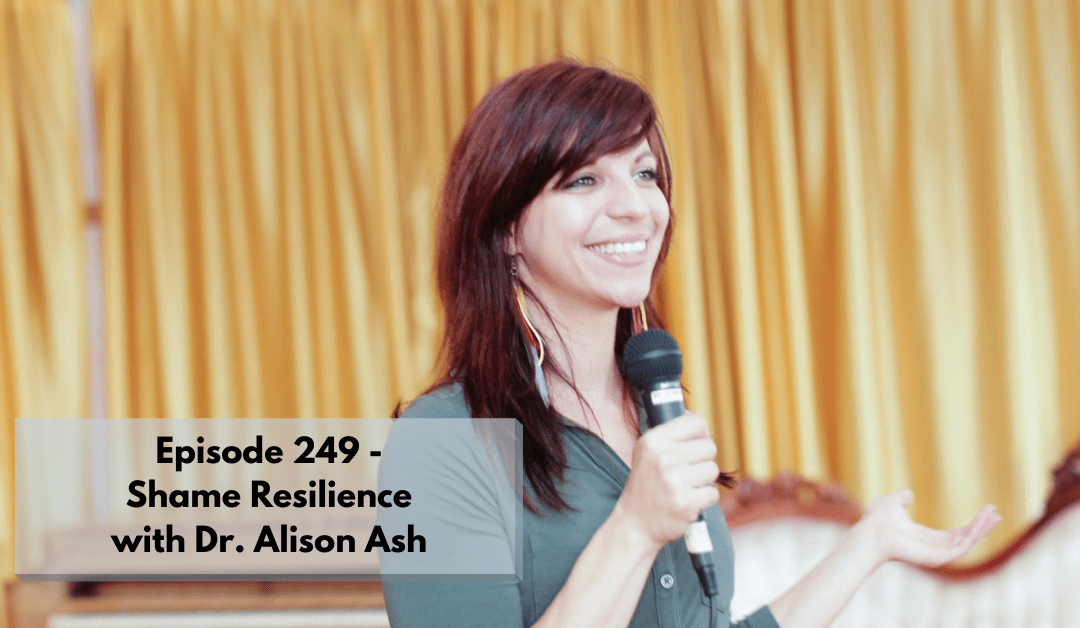This week, we sat down with sex coach Dr. Alison Ash to discuss the importance of emotional intimacy and shame in relation to kink and BDSM, as well as conflict resolution within D/s dynamics.
Dr. Alison’s Kink and Emotional Intimacy Background
We first jumped in to Dr. Alison’s Radioactive Spider Bite into Kink, which started with Burning Man 11 years ago. At the festival, a friend of hers who had an impact play kink taught her how to use a crop, and her kink interests blossomed from there. It took awhile for her to begin practically incorporating kink into her everyday sex life, but her first experience with a crop started a lifelong journey within kink and BDSM.
Fast forward to the present day, Dr. Alison is now a sex coach and sex educator who currently focuses her classes on the topic of emotional intimacy. Emotional intimacy is a skill that we can learn, but isn’t typically taught to us. What Dr. Alison does is teach people skills, as well as helping people be aware of obstacles that can get in the way of being open and vulnerable.
Emotional Intimacy and Shame Resilience
Dick and max bring up how the topic of shame can be a difficult one for them to discuss, because they both have humiliation kinks and tend to enjoy the feeling. Dr. Alison explains that this makes sense, because at its core, shame is a fear of rejection. The antidote to shame is the feeling of acceptance and belonging, so sharing in feelings of shame with accepting partners is a great healing tool. We discuss how kink is such a powerful tool in working through trauma and issues, because it allows us to recreate negative feelings in a setting we have control over.
Dr. Alison talks about how intimacy is the experience of being open and vulnerable with another person and feeling accepted in that. In order to experience intimacy, you have to have enough self-insight, as well as the willingness to do so. A lot of the time, we also have to unlearn social conditioning that tells us it’s wrong to be vulnerable. Since vulnerability isn’t always something that’s praised, we often don’t even know that it’s such a valuable skill to have. We move into talking about sexual intimacy—knowing your partner’s needs and desires and acting on them—and how the best sex is often messy, physically and emotionally. Emotional intimacy feeds sexual intimacy, and vise versa. Feelings of safety, trust, and being accepted make sex that much hotter.
Conflict Within D/s Dynamics
We move from intimacy and vulnerability into conflict within D/s dynamics. First things first, we cover how D/s dynamics typically need to be put on hold in order to work through conflict, in order to re-negotiate and communicate without a power structure in place.
Dr. Alison talks about how conflict tends to stem from fear—fear of rejection, fear of being misunderstood, and fear of not being safe. Often, when people are fighting, a feeling of safety needs to be re-established. There’s also typically a logical conversation (who said what, etc.) going on at the same time as an emotional conversation (how people’s feelings were hurt), and the emotional conversation should come first and be separate from the logical conversation. When there’s a power dynamic on top of all these, it further complicates something that’s already very complicated.
Repairing Emotional Intimacy
We discuss when relationships—specifically kink dynamics—need to be repaired. A breach of trust is definitely something that needs to be addressed, as well when you notice you’re creating stories in your head about what someone is thinking or doing. In that case, you’ll begin to relate to your partner based on a projection in your mind rather than the actual person. Additionally, you can pay attention to physical signs, such as if your body constricts around your partner, or if you’re not interested in being intimate with them anymore. Not wanting to engage in kink with someone is a great indication that there’s relationship repair that needs to be done.
Another topic we discuss is how physical limitations can cause conflict. In Dick’s case, he has a disability that partners have mistaken for him being distant, and Dr. Alison brings up some suggestions about how to work through these issues with a partner in a way that takes care of the feelings of both parties involved. She also brings up how important it is to communicate to your partner when you feel wounded rather than harboring it inside, because those are opportunities to deepen intimacy rather than deepen conflict.
Related Information
Finally, we answer listener questions about getting back into kink after experiencing abuse in a D/s dynamic, how to bring up feelings of embarrassment to your partner, how to flirt without sounding creepy, and how to rebuild emotional intimacy after a significant relationship conflict.
Thanks for listening! If you enjoyed this one, you’d probably like episodes 223, 218, and 217.
Dr. Alison’s Links:
Website (which includes information on her classes)
Twitter
Instagram
Facebook
Did you know we host a virtual munch every Friday? You can find more details about that here!
Keep us on the air by donating a buck or two to our Patreon! You can listen to an ad-free version of the show a week early, and you’ll have access to our Discord server. We post a lot of fun bonus content, including monthly photosets, silly and/or kinky videos, movie reviews. If you’d rather make a one time donation, you can do so at PayPal.me/OCPLLC.
Be sure to check out this week’s featured podcast recommendation, The Bed Post.
Find us on Twitter and Instagram: @ocpkink
More by PODCAST JUKEBOX:
Queers Next Door | Being There
Will Sean Podcast? | The Goth Librarian Podcast
Drinks with God | ProudToBeKinky | NO LOVE LOST











Trackbacks/Pingbacks